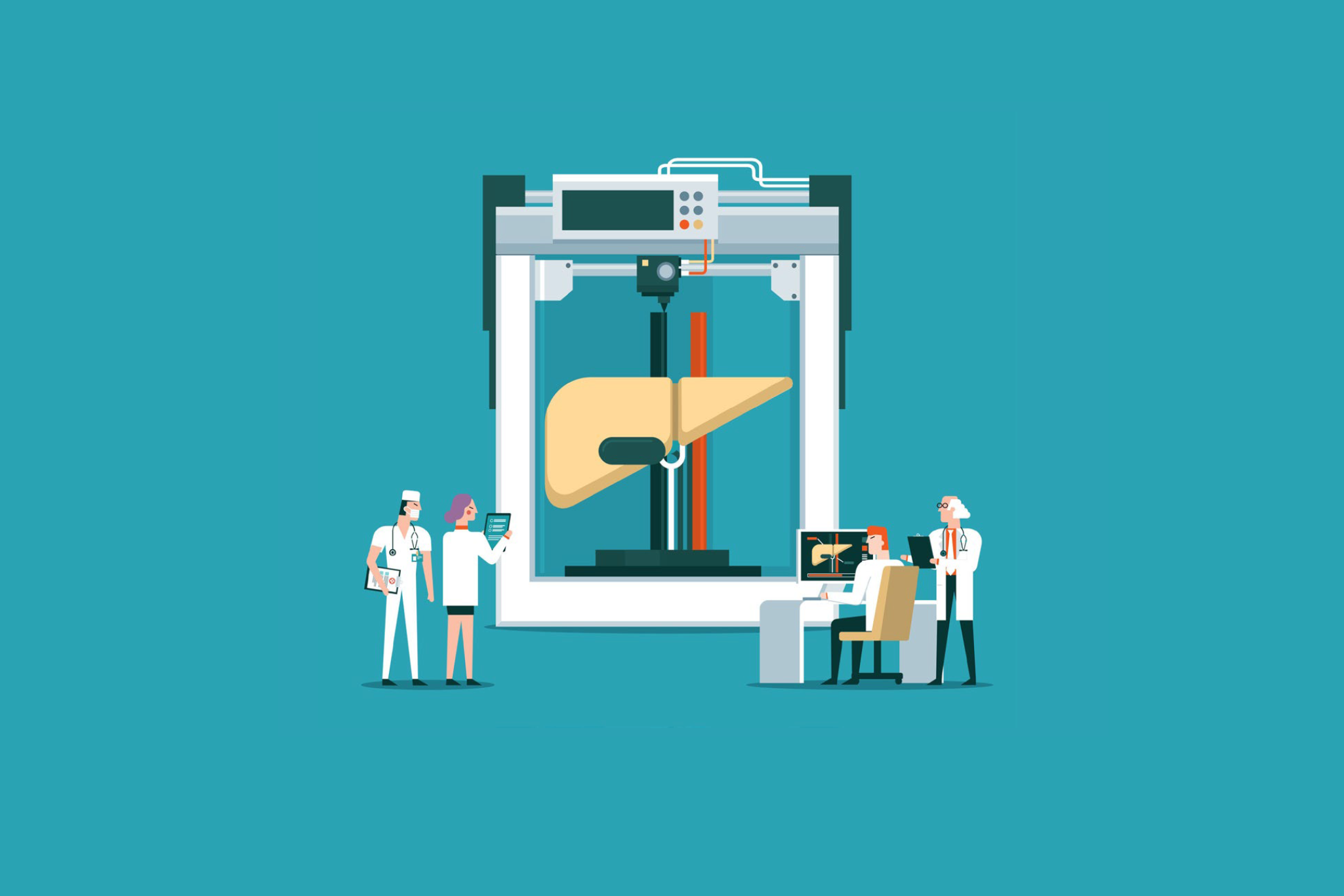
Issue 44
Nov 2022
COVID-19 SPECIAL

Artificial Intelligence (AI) is breaking new ground in the realm of innovation for healthcare. Today, AI is used extensively in the medical sciences, ranging from diagnosing patients to end-to-end drug discovery and development. In an unprecedented time of COVID-19, the need for AI capabilities is critical, given the dangers that the mutating COVID-19 viruses pose.
One way to better combat COVID-19 infections is to enlist the help of AI in determining the optimal combination of antiviral drugs, as well as the correct dosage. A recent study into the combination of antiviral drugs Molnupiravir and Paxlovid with YH-53, a protease-inhibiting drug, found that the mix was effective against the Omicron variant of COVID-19 in lab settings. It was led by Professor Dean Ho, Director of the Institute for Digital Medicine at the NUS Yong Loo Lin School of Medicine (NUS Medicine), and a team of NUS scientists.
He found that in lab settings, antiviral drugs Molnupiravir and Paxlovid combined with the protease-inhibiting drug YH-53 were effective against the Omicron variant of the coronavirus. Using his AI platform, IDentif.AI (Optimising Infectious Disease Combination Therapy with Artificial Intelligence), his team determined the combination and dosage.
One is good
Currently, when administered within five days of symptoms appearing, Paxlovid is about 90% effective in preventing the need for hospitalisation or infection progression. Paxlovid comprises two drugs— Nirmatrelvir, an antiviral medicine that targets the Sars-CoV-2 virus’ 3CL enzyme, which the coronavirus needs to replicate; and Ritonavir, a protease inhibitor which helps keep the antiviral active in the body at higher concentrations for a longer time to combat the virus.
Some patients in local and global contexts have had an infection relapse after a course of Paxlovid. This suggests the Sars-CoV-2 virus was not completely eradicated by the drug, nor by the infected person’s immune defences.
On the other hand, Molnupiravir alone is approximately 30% effective. It works by targeting an enzyme that the virus needs to make copies of itself, by introducing errors into its genetic code.
Another researcher in the team, Associate Professor David Allen, Associate Vice-President of Health Innovation and Translation at NUS Medicine, stated that while each drug on its own has not shown diminished efficacy against the Omicron variant, some patients in local and global contexts have had an infection relapse after a course of Paxlovid. This suggests the Sars-CoV-2 virus was not completely eradicated by the drug, nor by the infected person’s immune defences.
Caused by viral mutations, such drug resistance could undermine a drug’s effectiveness when used to treat patients with COVID-19.

Two is better
Instead of relying on each individual drug with limited effectiveness, the research team explored the possibility of combining the drugs to potentially decrease the chances of Sars-CoV-2 viral resistance.
Prof Ho and the team then used IDentif.AI and explored different combinations and the most precise dosing needed, to amplify the effects of both Molnupiravir and Paxlovid against Omicron. Each drug combination was then validated against the Sars-CoV-2 virus in lab tests, before it was considered for further clinical evaluation. One of the combinations involved adding YH-53, a protease-inhibiting drug from Japan. Protease-inhibiting drugs prevent the coronavirus from replicating.
Thus far, the results have shown that both Paxlovid and Molnupiravir, when combined with YH-53, had dose-dependent synergy. Prof Ho clarifies that when used together at the right dosing, the drugs were jointly more effective against Omicron.
Given the diversity of different drug candidates that are being studied, and the need to evaluate different permutations of drug combinations and the respective doses, much of the data needed in order to optimise drug development simply does not exist. IDentif.AI is unique in that we obtain the data that we need through carefully designed experiments in order to arrive at a ranked list of actionable and optimised regimens.”
The team is also further exploring broader dose configurations for these combinations, to determine the most effective one against Omicron with minimal toxic effects. Through IDentif.AI, they reduced the number of experiments needed, obtaining results at a faster rate. Prof Ho attributes this to the difference between IDentif.AI and traditional AI, where pre-existing data to train algorithms and predict drug combinations are warranted.
“Given the diversity of different drug candidates that are being studied, and the need to evaluate different permutations of drug combinations and the respective doses, much of the data needed in order to optimise drug development simply does not exist. IDentif.AI is unique in that we obtain the data that we need through carefully designed experiments in order to arrive at a ranked list of actionable and optimised regimens,” added Prof Ho, in a similar research study published in 2020, on the therapies against COVID-19. Out of 12 potential drug candidates, representing over 530,000 possible drug combinations, the study found that the optimal drug combination then was Remdesivir, Ritonavir, and Lopinavir.
The team found another effective combination involved trialing Molnupiravir with Favipiravir, an affordable influenza drug. The idea to experiment with Favipiravir came from numerous clinicians, as the drug is in relatively high supply in many countries to treat flu, and is both inexpensive and well tolerated.
When used alone, Favipiravir’s efficacy showed mix results in clinical trials conducted in Russia and Japan. However, results were better when Faviporavir was mixed with Molnupiravir in lab tests. The results for this trial done by Prof Ho and his team corresponded with another study done in Paris, in November 2021. In that study, the results showed that both Molnupiravir and Favipiravir worked synergistically, though Favipiravir had to be given at “fairly high” doses, said Prof Ho.
At the same time, apart from investigating the drug combinations effective in fighting Omicron, Prof Ho and his team are also working on helping immunosuppressed patients. They are currently in discussions with clinicians in Singapore, to conduct a pilot for a drug combination to improve efficacy for the target group.
This stems from the greater danger COVID-19 infections pose for patients with weakened immune systems, as they may not be able to mount a strong defence against COVID-19 infections, even when they are fully vaccinated.
Further studies in the works by Prof Ho and his team include Phase III clinical trials for potential COVID-19 pill, Shionogi, that is also a protease inhibitor, as well as Plitidepsin, a cancer therapeutic that may be effective against the virus.
More from this issue



